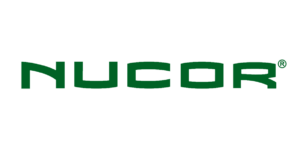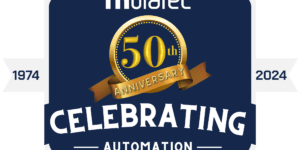Over a Barrel
Surface finish is the one feature of a rifle barrel that cannot be controlled in hammer forging. Now, custom rifle barrel makers are learning a trick from the makers of hammer forged barrels on how to overcome surface imperfections.
Posted: March 23, 2015
Hammer forged barrels are not well thought of by precision rifle shooters, but a critical manufacturing process used by the hammer forging guys is suddenly getting attention from custom barrel makers today. It’s honing, which produces a high-quality bore surface fast, which is critical to hammer forging.
Surface imperfections in a barrel blank before hammer forging will tend to be amplified as the blank is formed on the rifling mandrel. And if the bore is chromed afterward, imperfections in the surface finish become even more obvious. Surface finish is the one feature of the barrel that cannot be controlled in hammer forging – garbage in garbage out.
You may ask, “What about a reamed bore finish?” Sure, hammer-forged barrel blanks are gun drilled and reamed, just like all barrels. But a reamer starts to dull after the first part; scratches in the bore get rougher. For this reason, makers of hammer forged barrels regularly hone the bores of barrel blanks to enhance the product and improve process consistency.
Honing dramatically improves bore diameter size uniformity and accuracy, surface finish and roundness throughout the length of the barrel. It can certainly be used in place of a pre-rifling lap. The chief difference between a lapped and honed bore is the direction of the finish lines in the bore. Honing leaves fine spiraling crosshatch lines, while a lap leaves lines going longitudinally in the bore. After rifling, the manufacturer can remove the crosshatch finish with a quick lap if desired.
Honing is fast, accurate, and can be automated. Its surface quality and geometry can duplicate lapping, except for the longitudinal lines of the lapped finish. Honing is one of the processes used to make affordable, mass-produced, hammer-forged barrels that regularly hit MOA (minute of angle) accuracies. MOA accuracy may be a joke to precision benchrest shooters, but it’s a breakthrough for the consumer market, and competition has some manufacturers bragging about half-MOA as their new standard.
For custom barrel makers, honing is a time-saver and cost cutter. A few minutes on a honing machine can cut lapping times in half, leaving a crosshatched surface finish in single or low double-digit Ra. Honing is the same process used to make diesel fuel injectors with bore roundness and straightness controlled to fractions of a micron (<0.000040 in), with surface finish Ra ≤0.15 µm (6 µin).
One builder of these machines, Sunnen Products Company (St. Louis, MO), a supplier to defense contractors and discriminating commercial firearms makers for decades, makes a machine for .17 to .50 caliber that uses a spindle to correct bore size imperfections so small that only an air gage can measure them. Users aim to make sub-minute accuracy the norm for their standard rifle barrels. Custom barrel makers are catching on to this, too, so it’s time for a tip of the hat to the hammer forging guys for leading the way.
Dave Sengelaub is an application engineer at Sunnen Products Company, 7910 Manchester Avenue, St. Louis, MO 63143, 314-781-2100, www.sunnen.com.














